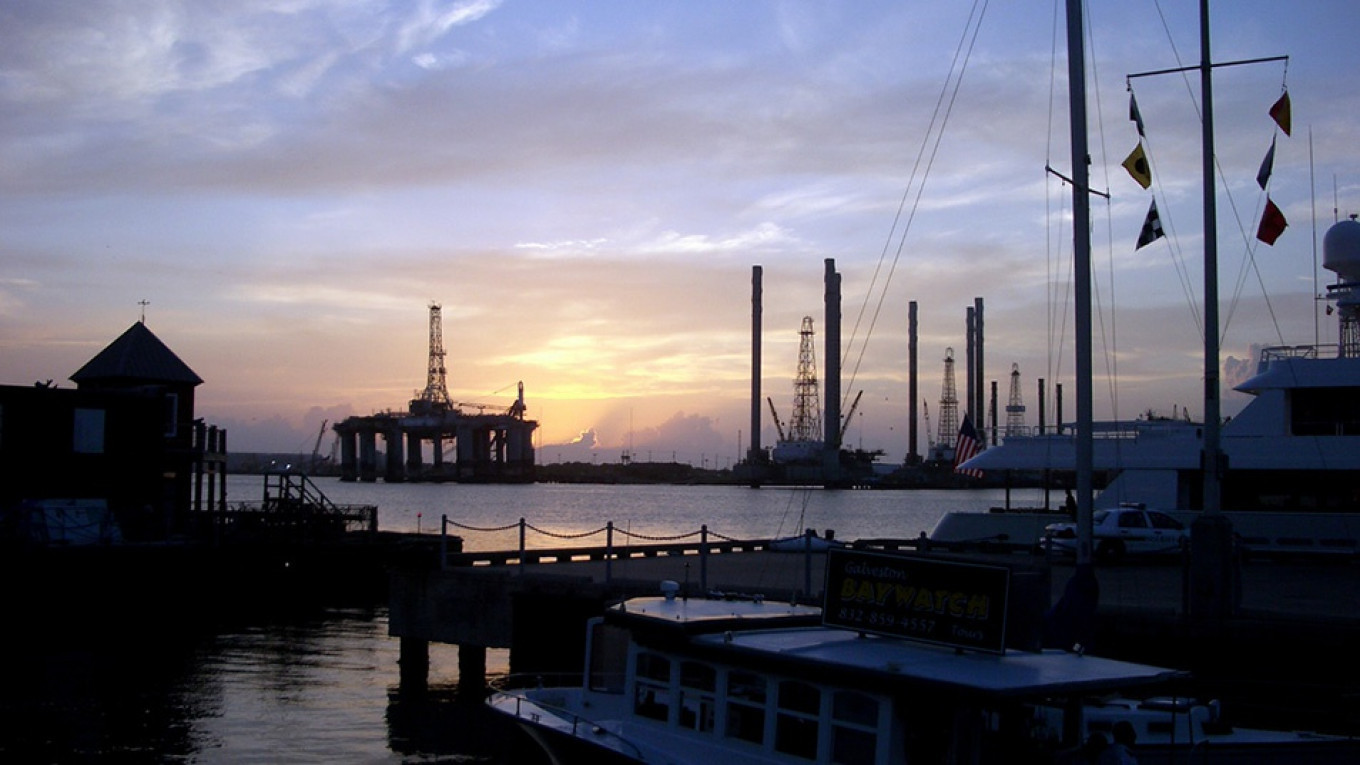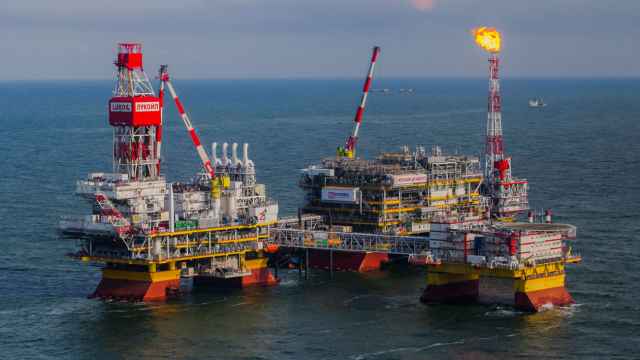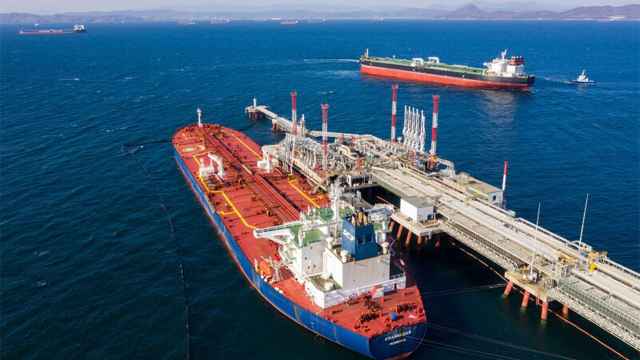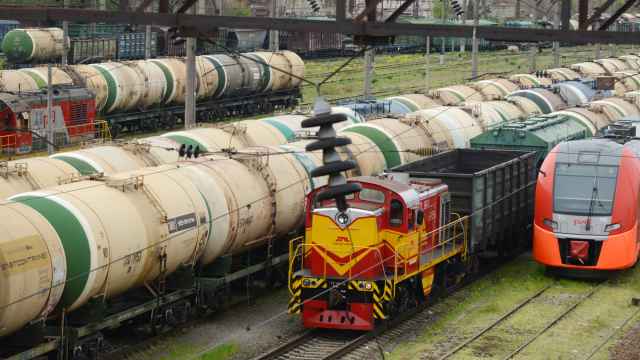The OPEC+ pact is hurting the Russian economy, potentially giving President Vladimir Putin a reason not to agree on an extension of the deal.
While higher crude prices can bring the Kremlin additional revenue, production cuts are weighing on one of the country's biggest industries. As the Russian leader decides whether to prolong the curbs into the second half, he may have to weigh his desire for faster economic growth against the benefits of his alliance with Saudi Arabia.
“The OPEC+ deal was one of the factors behind slower economic growth in Russia in the first quarter,” said Kirill Tremasov, a former economy ministry official who’s now an analyst at Loko-Invest in Moscow. “Given the oil price is now comfortable for the state budget and that crude producers are willing to pump up more, Russia may not want to extend the deal.”
Russia's GDP unexpectedly grew just 0.5 percent in the first quarter, below all 14 estimates in a Bloomberg survey. That compares with a 2.7 percent increase in the last three months of 2018, which was the highest in more than six years as crude output reached a record 11.45 million barrels a day in December, according to ministry data as OPEC+ curbs eased.
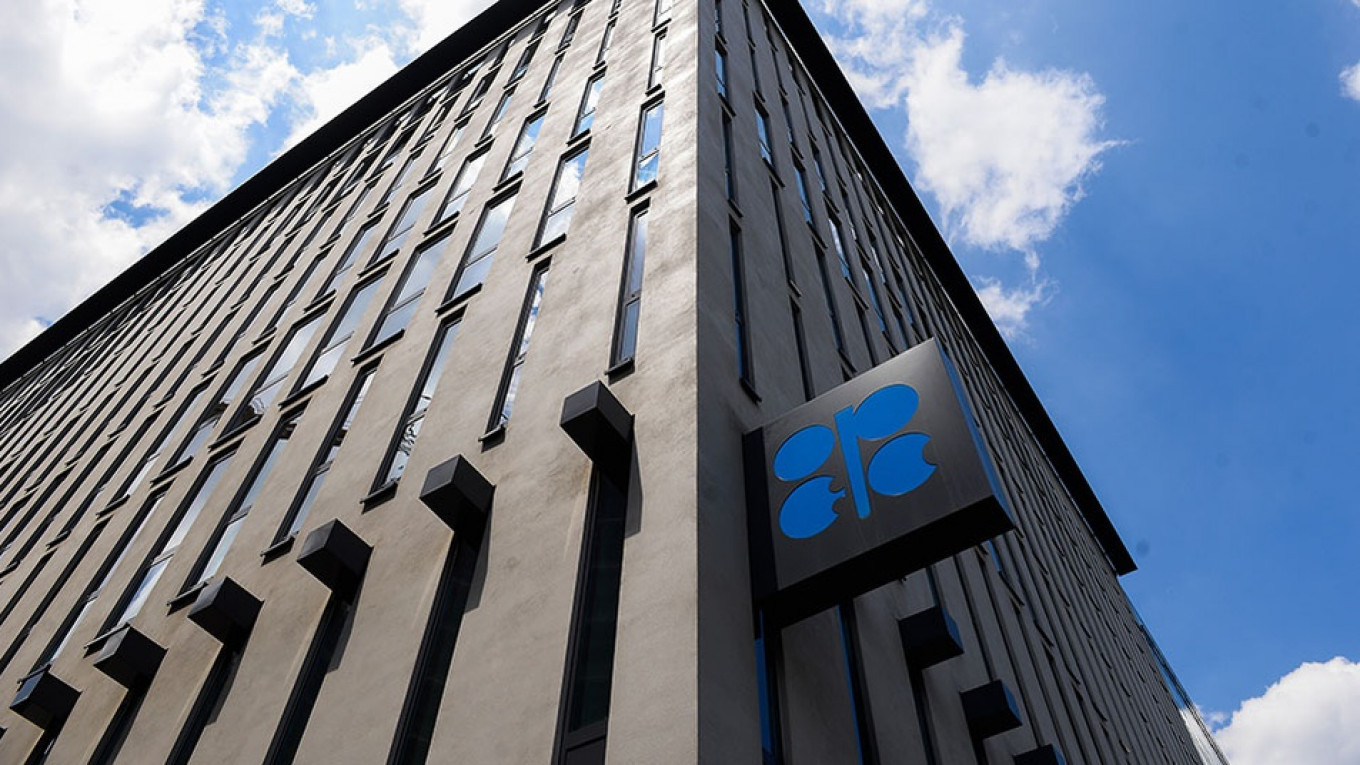
In its deal with the Organization of the Petroleum Exporting Countries, Moscow pledged to reduce the country's oil output by 228,000 barrels a day. While many of its OPEC allies, including the group's de-facto leader Saudi Arabia, say they prefer extending the agreement, which expires next month, Russia has talked about relaxing the cuts.
The economy ministry reiterated that the current deal is “a restraining” factor for the nation’s hydrocarbon production and mining. Data due Wednesday or Thursday is forecast to show that annual growth in industrial output was 2 percent in April, with estimates ranging from 0.8 percent to 3.9 percent, according to a Bloomberg survey of 15 economists.
Putin, who previously stated Russia will continue cooperation with OPEC+, is keeping all options on the table. “There are plans of our companies to develop new deposits, and we have a very attentive approach to that. We understand that the production shouldn’t stop, investment should come to the sector, otherwise that may create problems both for us and for global energy,” Putin said last month. “That’s why there will be balanced decisions.”
Fixed-capital investment in oil and natural gas output fell 2.3 percent last year, leading to an “extremely low” growth of investment in hydrocarbon production and mining, compared with a 2.2 percent total increase of fixed-capital investment, according to calculations from the Centre of Development Institute at the Higher School of Economics.
Rosneft PJSC, which pumps almost half of Russia's daily production, warned there will be a postponement of some projects for a few months “as a minimum” amid uncertainty over the OPEC+ deal.
Price boost
While the decline in output under the OPEC+ agreement is a negative for the economy, any slowdown is "easily offset by significant additional revenues that appear from higher oil prices" resulting from the deal, said Stanislav Murashov, an economist at Raiffeisenbank in Moscow. “With such global uncertainty and trade wars, Russian government is likely to prefer additional revenues that will increase its safety cushion,” he said.
The OPEC+ agreement has boosted the federal budget amid higher prices for energy commodities, which account for almost half of state finances. Additional revenue for the budget was about 6 trillion rubles ($93 billion) in the past two years, based on an energy ministry estimate that the output-cut deal resulted in a $10 increase per barrel in prices.
Under the so-called budget rule, all extra revenue from oil prices above $40 per barrel is transferred to a rainy-day fund which is now worth $59 billion, or 3.6 percent of GDP.
A Message from The Moscow Times:
Dear readers,
We are facing unprecedented challenges. Russia's Prosecutor General's Office has designated The Moscow Times as an "undesirable" organization, criminalizing our work and putting our staff at risk of prosecution. This follows our earlier unjust labeling as a "foreign agent."
These actions are direct attempts to silence independent journalism in Russia. The authorities claim our work "discredits the decisions of the Russian leadership." We see things differently: we strive to provide accurate, unbiased reporting on Russia.
We, the journalists of The Moscow Times, refuse to be silenced. But to continue our work, we need your help.
Your support, no matter how small, makes a world of difference. If you can, please support us monthly starting from just $2. It's quick to set up, and every contribution makes a significant impact.
By supporting The Moscow Times, you're defending open, independent journalism in the face of repression. Thank you for standing with us.
Remind me later.


